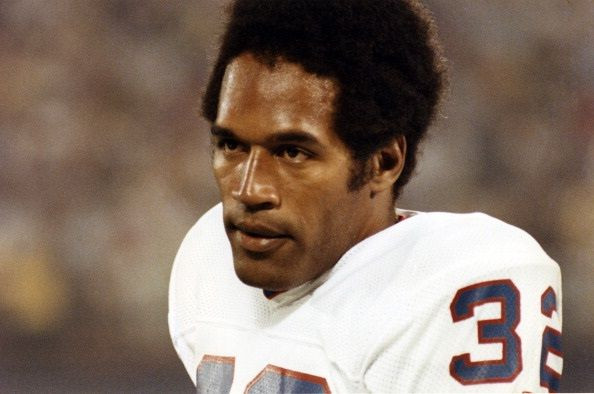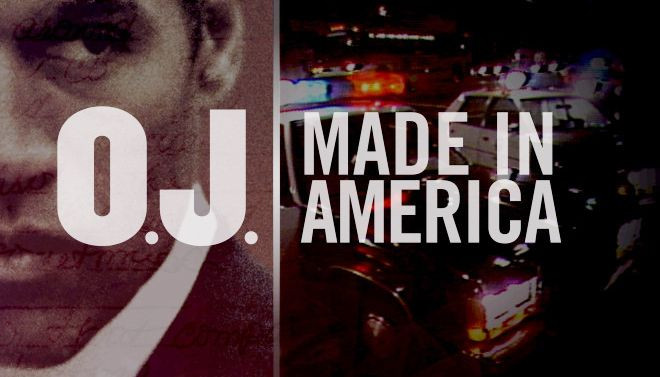‘O.J.: Made In America’ Fills In Gaps Left From FX’s ‘The People v. O.J. Simpson’

FX's "The People v. O.J. Simpson" dramatically renewed public interest in the divisive O.J. Simpson murder trial. ESPN Films' "O.J.: Made in America" is the perfect answer for those who still want more after the FX series finale. The seven and a half-hour documentary is a dense and powerful advanced course in Simpson's life and the notorious 1990s case.
"O.J.: Made in America," which will air in five parts starting June 11 on ABC and subsequently on ESPN as part of ESPN's popular "30 for 30" series, was played in its entirety in April at the Tribeca Film Festival in New York City. The film is a harrowing montage of archival footage and dozens of interviews that, unlike the FX series, goes all the way back to Simpson's roots in the slums of San Francisco, chronicling his life through his college football career at USC, NFL career in Buffalo and San Francisco, and his post-football life, before arriving at Simpson's trial for the 1994 murders of his ex-wife, Nicole Brown Simpson, and Ron Goldman.

The documentary provides added context and fills in many of the gaps left by "The People v. O.J. Simpson." Many of the key players, including prosecutor Marcia Clark, former LAPD detective Mark Fuhrman, former Los Angeles County District Attorney Gil Garcetti, Ron Goldman's father Fred Goldman, defense attorney Barry Scheck, prosecutor Bill Hodgman and defense attorney Carl Douglas, are on camera giving their perspective on many points in the yearlong spectacle. Viewers hear Fuhrman discuss past allegations of racism, Clark discuss her blind spot to black women on the jury and Douglas detail how the defense team gave Simpson's house a makeover to make him seem more sympathetic to a largely African-American jury. "If we had a Latino jury we would have had pictures of him wearing a sombrero," Douglas jokes.
What sets "O.J.: Made in America" apart is the detail and the scope. It is almost four hours into the documentary mini-series before the film arrives at the murders. In that time, director Ezra Edelman tours viewers through Simpson's history of domestic abuse and his career-long, calculated handling of his public image. Over the course of the documentary, the friendly face seen running through airports in Hertz ads starts to feel like a fabricated facade. As the movie continues deeper into Simpson's career, his unusually friendly relationship with the Los Angeles Police Department and the city's (mostly white) elite make it harder to imagine conspiracy theories that pin his murder charges on an elaborate frame job. Then there is the seeming purposefulness with which Simpson tried to abandon race as a defining characteristic in his life, from ignoring calls to activism to rejecting the label of a "black athlete," which contrasts curiously with widespread African-American support of his innocence as a victim of discrimination.
All in all, "O.J.: Made in America" is a searing indictment of Simpson the person. "I told him, 'O.J. you are breaking the laws of God,'" Joe Bell recalls telling Simpson, his childhood friend. "One day everyone's going to know everything that you've done."
However, the film is also extensively sympathetic to the history of Los Angeles that produced the city's polarizing reaction to the trial and ultimately the jury's verdict. Going back to the 1965 Watts riots and tracing the history of police brutality and discrimination by the LAPD against African-Americans all the way through the 1991 Rodney King beating, "O.J.: Made in America" makes a sobering case for why black people in the city had such intense distrust of the police and the criminal justice system. Edelman's film puts Simpson's story on hold so often that the documentary begins to feel as much about race in America than about Simpson.
That thread was an omnipresent force in "The People v. O.J. Simpson" too: The show began, after all, with footage of the 1992 post-Rodney King verdict riots. But there was simply no way for a scripted drama to provide the staggering amount of background info about the city's history present here. The result is a much more thorough understanding of how the trial became such a cultural touchstone for the city and the country.
Many will likely watch "O.J.: Made in America" because they watched "The People v. O.J. Simpson," but after the nearly eight-hour documentary is over, they may want to watch the FX series all over again. [FX planned a marathon of the 10-part series on June 11.]
Watch the trailer for "O.J.: Made in America" below:
© Copyright IBTimes 2024. All rights reserved.






















